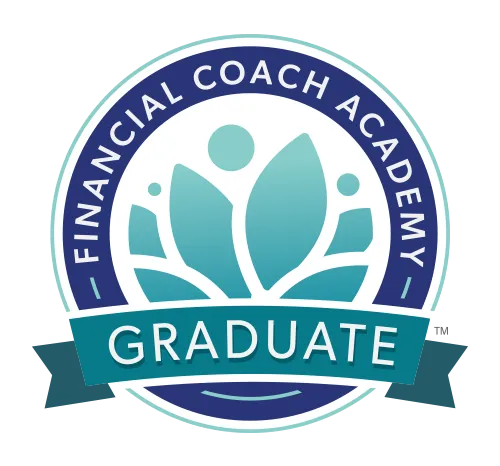
Access my free guide
Newly Single Jumpstart: 7 Financial Moves to Take Following the End of a Relationship
About Me

Jessica C. Koch, JD
Financial Coach and Advisor, Lawyer
My goal as a financial coach is to educate you on the basics of personal finance and, as a team, create a plan that reflects your values and goals. I aim to empower you to take responsibility for decisions, support you in your continued learning, and serve as an accountability partner and guide on your financial journey.
I help you decide what financial confidence means for you, work with you to embrace new habits, encourage you when the process gets tough, and hold you accountable to your goals.
My area of expertise and passion lies in helping women to take control of their finances following the end of a relationship. I started my career as a family lawyer, but I quickly realized I much prefer serving women going through divorce in other ways.
My experience as a family lawyer gives me a unique perspective when helping clients navigate post-relationship financial and emotional challenges.
In addition to my law degree, I am a certified financial advisor, a graduate of the Financial Coach Academy* and a Certified YNAB Coach**.
Blog

Freaked Out By Finances!
Today, I want to talk about the second most common question or comment that I get from clients - and that is generally “Money makes me scared. How do I deal with my fear around money and money management?”.
(Also, sidenote - did you know that there’s a word for fear of money? I didn’t - it’s chrometophobia. Cool. Spellcheck doesn't even recognize the word.)
Ok, so this all probably sounds pretty vague - and it doesn’t always get asked like this. Often, it’s a little more specific. Like:
I just lost my job, and I’m panicking about how to pay bills
I’m terrified that I’ll never be able to retire
I’m frozen in fear because of my huge debt
I’m afraid to invest, because I could lose lots of money
And of course:
I just separated from my spouse, and I don’t know what to do with my money
Apparently, the average person spends 15 hours a week worrying about finances. Which at first glance, I thought was shocking enough. That’s more than 2 hours. Every. Single. Day. But then I realized, there are a lot of people out there who worry EVEN MORE. 15 hours a week is just the average. That’s definitely something I want to help people with.
The first thing I want you to do is this: put your money fears into words. Write down exactly what it is about money that freaks you out. If you aren’t sure, think about how you behave with money - how do you spend it (or not), do you always use credit cards so your chequing account never gets to zero, are you investing or not.
Obviously, you’ll never be able to just will fear away. But there are steps you can take to manage that fear and tools you can use to lessen it.
Once you know what it is about money that freaks you out, you can start putting together a plan to tackle it. Financial fears tend to fall into broader categories: for instance - the fear of losing a job, not being able to pay bills, or going into debt comes from a fear of running out of money.
If this is you, then your plan to tackle this fear might look like starting an emergency fund. All you need to do this is to open an account - and I like online high interest savings accounts for this, because ideally this money is going to sit for a while without being spent, so you want it doing something for you. And that something is earning a little bit of interest. I use EQ Bank in Canada. In the States, I’ve heard good things about Ally Bank. Regardless, the account should be slightly difficult to access on the day-to-day, but not so difficult that you can’t get your money within 1 or 2 days. And then decide on an amount you can afford to fund it every month. Even if it’s just $20 - ideally it’s more - but even if that’s it, it’s something. Automate that shit, too. Set up a monthly transfer from your chequing account to your emergency savings.
The key to this, no matter what your fear is, is to take very small steps, and don’t move to the next step until the one you’re on is completed. If you are frozen because of your debt, start by figuring out exactly how much you owe on each account. Once you know this, figure out what the minimum payment on each of those debts is, and when it’s due. Add the total of all minimum payments to your monthly budget. Then, choose the debt you want to pay off first - it does not matter which one (I mean, it could, but for our purposes - paying off any debt is best). Freeze that account, (freeze them all ideally) so that it doesn’t get added to. And then automate an extra monthly payment to that debt until it’s gone. Rinse and repeat.
Let’s do a quick summary:
Generally, you need to have a pretty clear picture of your financial situation as a whole to tackle money fears. That means, you need to be looking at all your accounts, statements, debt levels - all of it. This feels even scarier, but trust me - it is the first step towards reducing those worries. Knowledge is power here.The more you know about your money, the less intimidating it becomes.
Put a name on your fear. Fear of running out of money, fear of never being out of debt. Name it.
Put together a plan to tackle that specific fear. Take small steps towards it.
Automate savings and debt payments. Get them out of your brain by knowing you are making progress every month.
Of course you always have the option of hiring a financial expert to help you with your specific money fears. That’s what I do, every day. And I would love to talk to you about ways I can help. So go ahead and book a free 15 minute QA call with me to find out how we can work together to get to the root of your money fears.
Get In Touch
Book a FREE Q&A Call
This is a totally free, zero-obligation, 15 minute call, where you can ask all your questions and get a good idea of how we can work together.

*I completed the Financial Coach Academy, the industry’s leading financial coach training program, in April 2023. The Academy is like an MBA for financial coaches and I'm proud to continuously serve my clients by being a student of my craft. By completing the Academy, I have demonstrated my commitment to expanding my education, serving my clients, and growing my coaching business.

**I am a YNAB Certified Budgeting Coach, which means that I have been trained to coach people on using YNAB software and the YNAB budgeting method. I have met select requirements of You Need a Budget LLC in order to receive this certification, which means that I have the ability to competently coach YNAB to others. I am not an employee of YNAB, and all non-YNAB related opinions and recommendations are my own. My views do not reflect the views of YNAB and its employees or its affiliates.


